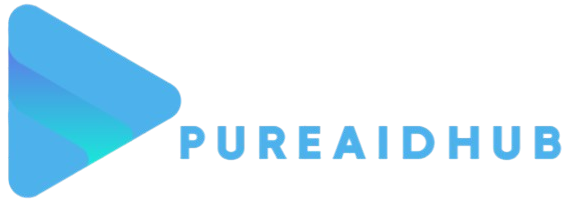Artificial Intelligence (AI) is rapidly transforming Keeper AI industries, reshaping how we live and work. With its growing influence, ensuring AI systems are safe and ethical has never been more crucial. In this blog post, we’ll explore how Keeper AI Standards can serve as a beacon for developing responsible AI technologies. Whether you’re a developer, business leader, or policy maker, understanding these standards is key to harnessing the full potential of AI while minimizing risks.
Understanding the Importance of Safe and Ethical AI
In today’s digital era, AI technologies are integrated into various aspects of our daily lives. From healthcare diagnostics to autonomous vehicles, AI’s reach is extensive. However, with great power comes great responsibility. Ensuring AI systems are both safe and ethical is vital to prevent unintended consequences. Safe AI systems are designed to operate reliably and predictably, minimizing risks to users and the environment. Ethically, these systems must respect human rights and societal values, avoiding biases and promoting fairness.
Keeper AI Standards at a Glance
Keeper AI Standards provide a comprehensive framework for evaluating and guiding the development of AI technologies. These standards cover a wide range of criteria, from data privacy to transparency. By adhering to these standards, organizations can ensure their AI systems meet high safety and ethical benchmarks. One key aspect of Keeper AI Standards is their adaptability. They are designed to evolve alongside technological advancements, ensuring relevancy in a rapidly changing landscape.
The Role of Transparency in AI Systems
Transparency is a core principle of Keeper AI Standards. It refers to the clarity and openness with which AI systems operate. Transparent AI systems allow stakeholders to understand their decision-making processes, fostering trust and accountability. This transparency is crucial in identifying and rectifying biases or errors, enhancing the system’s reliability. By prioritizing transparency, Keeper AI Standards empower users to make informed decisions and hold AI systems accountable.
Ensuring Data Privacy and Security
Data privacy and security are paramount in the realm of AI. Keeper AI Standards emphasize the need for robust data protection measures to safeguard sensitive information. AI systems often rely on vast amounts of data, making them vulnerable to breaches. By implementing strong encryption, access controls, and continuous monitoring, organizations can protect data integrity and build trust with users. Adhering to these standards not only mitigates risks but also strengthens an organization’s reputation.
Mitigating Bias and Promoting Fairness
Bias in AI systems can lead to discriminatory outcomes, impacting marginalized communities disproportionately. Keeper AI Standards address this by promoting fairness and inclusivity. Developers are encouraged to identify and eliminate biases in data and algorithms, ensuring equitable treatment for all users. This involves diverse datasets, rigorous testing, and continual evaluation of AI systems. By prioritizing fairness, organizations can create AI technologies that reflect societal values and foster inclusivity.
The Significance of Human Oversight
Human oversight is a fundamental aspect of Keeper AI Standards. While AI systems can automate complex tasks, human judgment remains essential. These standards advocate for human involvement in critical decision-making processes, ensuring AI systems align with ethical and safety considerations. Human oversight enables the identification of potential issues and the implementation of corrective actions. By maintaining a human-in-the-loop approach, organizations can balance AI efficiency with ethical responsibility.
Building Trust Through Independent Audits
Independent audits play a crucial role in validating AI systems’ compliance with Keeper AI Standards. These audits involve third-party evaluations to assess the system’s safety, ethics, and performance. By undergoing rigorous audits, organizations demonstrate their commitment to responsible AI development. Independent audits provide an unbiased assessment, instilling confidence in stakeholders and enhancing the organization’s credibility. This transparency fosters trust and accountability in AI technologies.
Fostering Continuous Improvement
Continuous improvement is a key tenet of Keeper AI Standards. AI technologies are dynamic, requiring ongoing updates and refinements. These standards encourage organizations to establish feedback loops and learning mechanisms to enhance AI systems over time. By analyzing performance data and user feedback, organizations can identify areas for improvement and implement changes effectively. Continuous improvement ensures AI systems remain relevant, reliable, and aligned with societal needs.
The Role of Regulation and Policy
Regulation and policy play a vital role in shaping the AI landscape. Keeper AI Standards advocate for proactive engagement with regulatory bodies to establish clear guidelines and frameworks. By collaborating with policymakers, organizations can influence regulations that promote safe and ethical AI development. Regulatory compliance ensures accountability and minimizes risks. Keeper AI Standards serve as a guide for navigating regulatory complexities, enabling organizations to align with legal requirements while fostering innovation.
Empowering Users Through Education
Education is a powerful tool for promoting safe and ethical AI. Keeper AI Standards emphasize the importance of user education and awareness. By providing accessible resources and training, organizations empower users to understand AI technologies and their implications. Informed users can make responsible choices and advocate for ethical AI practices. Education fosters a culture of accountability and ensures AI technologies are used for the greater good.
The Future of Keeper AI Standards
The future of Keeper AI Standards is promising. As AI technologies continue to evolve, these standards will adapt to address emerging challenges and opportunities. By staying ahead of technological advancements, Keeper AI Standards will remain relevant and impactful. Organizations that prioritize these standards will lead the way in developing responsible AI technologies. The future holds immense potential for AI to drive positive change, and Keeper AI Standards will be at the forefront of this transformation.
Conclusion
In conclusion, Keeper AI Standards provide a robust framework for testing and developing safe and ethical AI systems. By prioritizing transparency, data privacy, fairness, human oversight, and continuous improvement, organizations can harness AI’s potential while minimizing risks. These standards empower organizations to build trust, foster accountability, and promote responsible AI development. By adhering to Keeper AI Standards, organizations can confidently navigate the AI landscape and contribute to a future where AI serves as a force for good.







